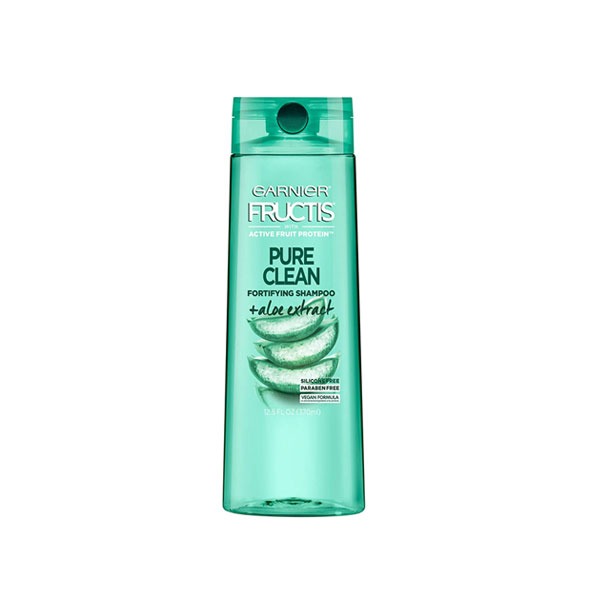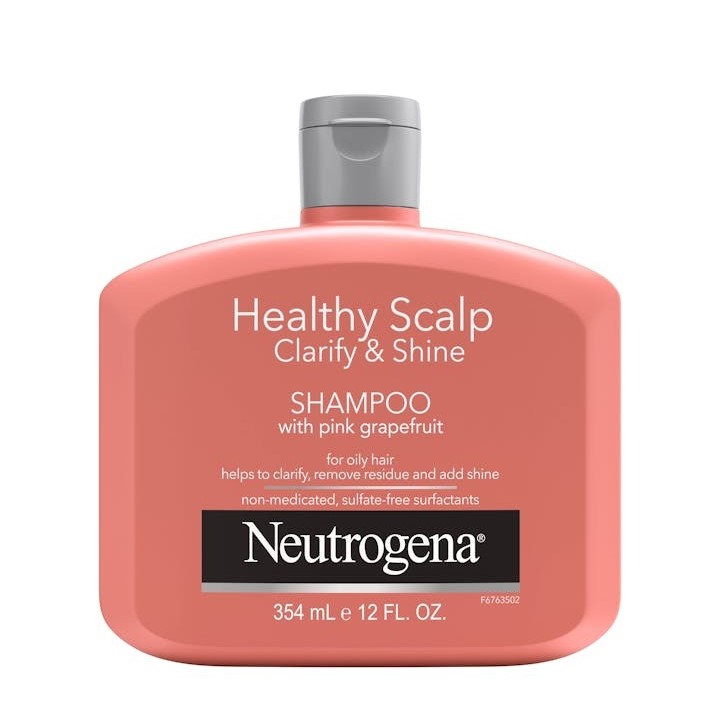Introduction: Addressing Oily Hair Concerns
For many, oily hair is an everyday hurdle. It can leave you feeling self-conscious and stuck in a cycle of constant washing. Yet, the right shampoo and conditioner for oily hair can be a game-changer. Balancing oil levels without stripping the scalp is crucial.
If you’re dealing with oily strands, you’re not alone. It’s a common challenge, especially as we grapple with external factors like pollution and stress that can exacerbate the issue. The goal of our 2025 guide is to help you understand the root causes of oily hair and find the best products to manage it.
This guide will dive into the science of why hair gets oily and outline the top ingredients to look for when selecting your hair care. We’ll talk about the role of conditioners in managing oily hair, and share proper washing and conditioning techniques. Plus, we’ll explore 2025 trends in hair care, including the latest innovative products, and how they can help you keep oiliness at bay.
By the end of this read, you should feel equipped to select the best shampoo and conditioner suited to your oily hair needs. Say goodbye to the grease and hello to balanced, healthy-looking locks.
The Science Behind Oily Hair and Scalp
Interpreting the causes of oily hair begins with understanding the scalp’s biology. Sebaceous glands in the scalp produce sebum, a natural oil that hydrates the hair and skin. However, excessive sebum can lead to oily hair. Factors like genetics, hormonal imbalances, and even stress can increase oil production. Identifying these factors is crucial for effective hair care.
Causes of Excess Oil Production
What triggers these glands to overwork? Hormones, particularly androgens, play a significant role. Puberty, periods, pregnancy and stress can all upset hormonal balance, causing sebaceous glands to pump out more oil. Genetics also dictate oil secretion levels, explaining why some people struggle more with oily hair. External factors such as the environment, heavy use of styling products, or over-washing can worsen the condition by stimulating oil production as a response to dryness.
The Importance of Proper Scalp Care
Proper scalp care is essential for managing oily hair. A healthy scalp contributes to balanced sebum production. Use a gentle yet effective shampoo and conditioner for oily hair designed to clean without stripping. It’s best to avoid harsh chemicals that can irritate the scalp and lead to more oil. Regular exfoliation can also help by removing dead skin cells and product buildup that block pores and can cause the sebaceous glands to overproduce oil. Maintaining a clean scalp without overstimulating the glands is key.
Top Ingredients to Look for in Shampoos for Oily Hair

Choosing the right shampoo for oily hair can be daunting. There are numerous ingredients out there, but not all are beneficial for managing oiliness. To help you navigate your choices, here are the most effective ingredients to look for in a shampoo for oily hair.
Clarifying Agents That Combat Oil
When selecting a shampoo, opt for those with clarifying agents. These substances are specially formulated to cleanse excess oils effectively. Look for ingredients like salicylic acid, which helps break down oil buildup, and tea tree oil, known for its oil-reducing properties. Additionally, witch hazel can act as a natural astringent to minimize oiliness.
Soothing Ingredients to Balance Scalp Health
While combatting oil is essential, so is maintaining scalp health. Ingredients with soothing properties are vital. Aloe vera and chamomile are great for calming the scalp, reducing the potential for irritation and inflammation. Zinc pyrithione can be another ally, known to balance scalp oil production. These ingredients ensure your scalp’s environment remains conducive to healthy hair growth without excess oil.
The Role of Conditioners in Managing Oily Hair
While shampoo plays a crucial part in cleaning oily hair, conditioners also hold importance in the management process. It might be tempting to skip conditioner when you have oily hair, but the right formula can help balance moisture levels without adding extra oil. Identifying the best conditioner for your needs involves understanding the role it plays and how it can help maintain hair health.
Lightweight Conditioners: What to Choose
Lightweight conditioners are a must for those with oily hair. They hydrate and detangle without leaving a heavy residue that can exacerbate oiliness. When shopping for a conditioner, look for products labeled ‘volumizing’, ‘strengthening’, or ‘balancing’. These terms often indicate a lighter product that won’t weigh down your strands. Selecting a conditioner with hydrolyzed proteins can also help, as they strengthen hair without adding grease.
Ingredients That Hydrate Without Weighing Hair Down
The key to choosing a conditioner for oily hair lies in the ingredients. You should look for hydrating substances that don’t leave behind oils or silicones. Examples include glycerin, which draws moisture into the hair shaft, and panthenol, which improves hair elasticity and retains moisture without oiliness. Another ingredient, behentrimonium chloride, can provide conditioning benefits while helping to keep the scalp clean and fresh.
2025 Trends: Innovative Products for Oily Hair
As we look ahead to 2025, innovative trends in hair care are shaping the market. These trends provide new ways to tackle the age-old issue of oily hair with advanced solutions. Oily hair sufferers can expect products that offer more personalized care and leverage cutting-edge science to balance scalp oil production. Let’s explore the most exciting advances and the growing demand for natural and organic options.
Advances in Hair Care Technology
In 2025, technology in hair care sees major leaps. Brands are using biotechnology to create shampoos and conditioners that target the scalp’s sebaceous glands directly. These advanced formulas help maintain oil balance without harsh effects. Nanotechnology is another buzzword, with microscopic particles helping to deliver active ingredients more efficiently. Expect to see smart hair care devices that pair with apps to analyze your hair’s needs in real-time and suggest custom product blends for your oily hair concerns.
Natural and Organic Options on the Rise
In response to a growing demand for sustainability, natural and organic hair care options are booming. Consumers with oily hair are turning to eco-friendly products that are gentle on the scalp and free from synthetic additives. Key natural ingredients like green tea extract and clay are prevalent, known for their ability to absorb excess oils without chemical intervention. These organic choices not only benefit your scalp health but also contribute to the wellbeing of our planet, adding to their appeal.
How to Properly Wash and Condition Oily Hair

Washing and conditioning oily hair requires a mindful approach. To keep oil levels in check, it’s vital to use the right techniques which cleanse without increasing oil production.
Techniques That Reduce Oil Buildup
Simple changes in your washing routine can greatly impact how oily your hair appears. Here are a few techniques:
- Pre-Wash Your Hair: Before using shampoo, rinse your hair thoroughly. This preliminary step can help wash away surface oils.
- Apply Shampoo Correctly: Focus shampoo on the scalp where oil is produced. Avoid applying too much on the ends of your hair.
- Use Lukewarm Water: Hot water can stimulate oil production. Opt for lukewarm water to rinse your hair.
- Be Gentle: Aggressive scrubbing can irritate your scalp and lead to more oil. Massage your scalp softly.
- Skip Daily Shampoos: If possible, don’t shampoo every day. This can strip your scalp of natural oils, triggering more oil production.
- Condition Ends Only: When using conditioner, apply it to the ends of your hair. This prevents your roots from getting greasy.
These techniques, when used with the recommended shampoo and conditioner for oily hair, can reduce excessive oiliness.
Frequency of Washing for Optimal Scalp Health
Finding the right balance between washing too often and not enough is key. For oily hair, washing every other day is a good starting point. Adjust this frequency based on how your scalp responds. If your hair is excessively oily even with every other day washing, consider extending the interval. On the other hand, if it begins to feel too dry, you may need to wash it more frequently. It’s essential to monitor your hair’s response and adjust accordingly to maintain optimal scalp health.
The Best Practices for Oily Hair Maintenance
Maintaining oily hair requires a holistic approach that goes beyond just the right shampoo and conditioner for oily hair. To manage oil production effectively, incorporating best practices into your daily routine is essential. These encompass lifestyle adjustments and, if necessary, professional treatments.
Lifestyle Adjustments for Healthier Hair
Lifestyle plays a significant role in the health of your hair. Here are some beneficial changes:
- Diet: Eat a balanced diet with plenty of vitamins and minerals to support hair health.
- Hydration: Drink plenty of water to stay hydrated, which can help your scalp’s health.
- Stress Management: Reduce stress through activities like yoga or meditation, as stress can increase oil production.
- Hair Products: Use non-comedogenic hair products to avoid clogging the pores on your scalp.
- Hair Accessories: Choose natural fiber hats and headbands that absorb oil and prevent it from spreading.
- Physical Activity: Regular exercise can improve blood circulation, including to your scalp, aiding health and reducing excess oil.
These lifestyle changes can have a positive impact on managing oily hair and overall scalp health.
Professional Treatments and Solutions
Sometimes, an expert’s help is required to maintain oily hair effectively. Consider the following professional solutions:
- Scalp Treatments: Specialized scalp treatments can balance oil production when done by a professional.
- Consult a Trichologist: A trichologist can provide tailored advice and treatments for your hair type.
- Salon Quality Products: Professional shampoos and conditioners may offer stronger solutions for oily hair management.
- Regular Haircuts: Frequent trims can help manage oil distribution and keep your hair looking fresh.
By integrating these practices and seeking professional advice when needed, you can confidently manage oily hair and maintain a healthy scalp.
Conclusion: Embracing Your Hair Type with the Right Products

Understanding your hair’s unique needs is the first step to healthy, balanced locks. Oily hair can be a challenge, but with the right shampoo and conditioner, it’s manageable. This guide has covered the essentials—from the science of oil production to the best ingredients and practices for oily hair care. The goal? To empower you with knowledge and choice.
Select shampoos with clarifying agents and conditioners that are lightweight. These products are formulated to address oily hair concerns without adding extra weight or grease. Remember, even oily hair needs hydration. Look for conditioners with hydrating ingredients that won’t leave residue.
In 2025, there are more options than ever. Advances in hair care technology bring personalized solutions. The rise of natural and organic products offers gentle alternatives. They cater to those seeking an eco-friendly lifestyle while managing oily hair.
Daily routines, such as correct washing techniques and a balanced lifestyle, ensure long-term hair health. Regular professional treatments tailored to your hair type can help too. Adjusting how often you wash, the products you choose, and addressing lifestyle factors like diet and exercise, all contribute to your hair’s well-being.
Embrace your hair type with confidence. The right shampoo and conditioner for oily hair, combined with best practices, can transform your hair care game. Say goodbye to the daily struggles with oiliness, and hello to a fresh, balanced look.
